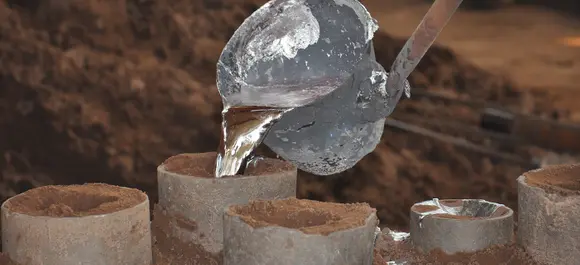Mobile:+86-311-808-126-83
Email:info@ydcastings.com
high pressure pump impeller
High Pressure Pump Impellers An Overview
High pressure pump impellers play a crucial role in the functioning of various industrial and engineering applications. These components are designed to convert mechanical energy into hydraulic energy, resulting in the movement of fluids at elevated pressures. The efficiency and performance of high-pressure pumps significantly depend on the design, material, and operating conditions of the impeller. In this article, we will explore the importance of high-pressure pump impellers, their design characteristics, and the materials commonly used in their construction.
Importance of High Pressure Pump Impellers
High-pressure pumps are essential in numerous industries, including oil and gas, pharmaceuticals, water treatment, and chemical processing. They are used to transport fluids such as water, chemicals, and hydrocarbons under high pressure, which is essential for various applications, including hydraulic systems, irrigation, and firefighting.
The impeller, as the heart of the pump, is responsible for imparting kinetic energy to the fluid. As the impeller blades rotate, they create a centrifugal force that accelerates the fluid outward, increasing its pressure. The efficiency of this energy conversion process directly impacts the operational costs and performance of the entire pumping system, making the design of the impeller critical.
Design Characteristics of Impellers
The design of high-pressure pump impellers is complex, requiring careful consideration of several factors. Some of the key design characteristics include
1. Blade Shape and Geometry The shape and angle of the impeller blades significantly influence the flow characteristics and efficiency of the pump. Curved blades are often used to enhance flow smoothness and reduce turbulence, while the number of blades can vary based on the specific application, balancing performance with ease of manufacture.
2. Diameter and Size The diameter of the impeller affects both the capacity (flow rate) and the pressure of the pumped fluid. Larger impellers typically generate higher flow rates but may require more power to drive. Conversely, smaller impellers may lead to higher pressures but lower flow rates. Selecting the optimal size is essential to meet system requirements.
high pressure pump impeller

3. Clearance and Tolerance The clearance between the impeller and the pump casing is vital. Too large a clearance can lead to loss of efficiency due to recirculation of fluid, while too small a clearance may result in excessive wear and potential damage. Precise manufacturing tolerances are essential to ensure optimal performance.
Materials Used in Impeller Construction
The materials used to construct high-pressure pump impellers must withstand extreme conditions, including high pressure, temperature variations, and corrosion from the fluids being pumped. Common materials include
1. Stainless Steel Known for its strength and resistance to corrosion, stainless steel is frequently used in applications requiring durability and hygiene, such as pharmaceuticals and food processing.
2. Alloys Specialized alloys, such as bronze or nickel-based alloys, may be selected for specific applications where additional strength and corrosion resistance are necessary, especially in chemical processing environments.
3. Plastic Composites In lower-pressure applications or where weight is a concern, high-performance plastic composites can be an excellent choice.
4. Ceramics For high wear applications, ceramic impellers are gaining popularity due to their exceptional hardness and resistance to erosion.
Conclusion
High pressure pump impellers are critical components that facilitate the efficient movement of fluids across various industries. Their design and material selection directly influence the performance and reliability of pumping systems. As industries continue to evolve and demand more efficient solutions, advancements in impeller design and materials will play a significant role in achieving higher performance standards and sustainability goals. Understanding the principles behind high-pressure pump impellers is essential for engineers and technicians involved in fluid handling systems, ensuring they can select the right components for their specific applications.
-
Why Should You Invest in Superior Pump Castings for Your Equipment?NewsJun.09,2025
-
Unlock Performance Potential with Stainless Impellers and Aluminum End CapsNewsJun.09,2025
-
Revolutionize Your Machinery with Superior Cast Iron and Aluminum ComponentsNewsJun.09,2025
-
Revolutionize Fluid Dynamics with Premium Pump ComponentsNewsJun.09,2025
-
Optimizing Industrial Systems with Essential Valve ComponentsNewsJun.09,2025
-
Elevate Grid Efficiency with High-Precision Power CastingsNewsJun.09,2025











